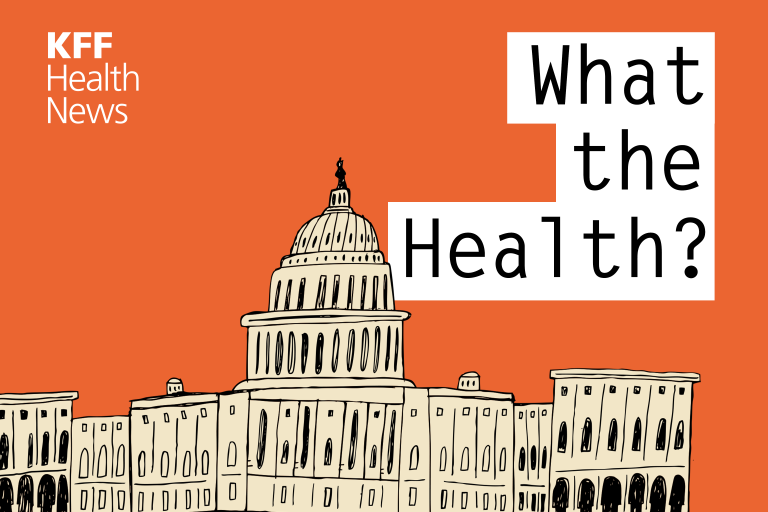The Host
As part of a media blitz aimed at women voters, Vice President Kamala Harris this week rolled out a plan for Medicare to provide in-home long-term care services. It’s popular, particularly for families struggling to care for both young children and older relatives, but its enormous expense has prevented similar plans from being implemented for decades.
Meanwhile, President Joe Biden called out former President Donald Trump by name for having “led the onslaught of lies” about the federal efforts to help people affected by hurricanes Helene and Milton. Even some Republican officials say the misinformation about hurricane relief efforts is threatening public health.
This week’s panelists are Julie Rovner of KFF Health News, Shefali Luthra of The 19th, Jessie Hellmann of CQ Roll Call, and Joanne Kenen of the Johns Hopkins schools of public health and nursing and Politico.
Among the takeaways from this week’s episode:
- Vice President Kamala Harris’ plan to expand Medicare to cover more long-term care is popular but not new, and in the past has proved prohibitively expensive.
- Former President Donald Trump has abandoned support for a drug price policy he pursued during his first term. The idea, which would lower drug prices in the U.S. to their levels in other industrialized countries, is vehemently opposed by the drug industry, raising the question of whether Trump is softening his hard line on the issue.
- Abortion continues to be the biggest health policy issue of 2024, as Republican candidates — in what seems to be a replay of 2022 — try to distance themselves from their support of abortion bans and other limits. Voters continue to favor reproductive rights, which creates a brand problem for the GOP. Trump’s going back and forth on his abortion positions is an exception to the tack other candidates have taken.
- The Supreme Court returned from its summer break and immediately declined to hear two abortion-related cases. One case pits Texas’ near-total abortion ban against a federal law that requires emergency abortions to be performed in certain cases. The other challenges a ruling earlier this year from the Alabama Supreme Court finding that embryos frozen for in vitro fertilization have the same legal rights as born humans.
- The 2024 KFF annual employer health benefits survey, released this week, showed a roughly 7% increase in premiums, with average family premiums now topping $25,000 per year. And that’s with most employers not covering two popular but expensive medical interventions: GLP-1 drugs for weight loss and IVF.
Also this week, excerpts from a KFF lunch with “Shark Tank” panelist and generic drug discounter Mark Cuban, who has been consulting with the Harris campaign about health care issues.
Plus, for “extra credit,” the panelists suggest health policy stories they read this week they think you should read, too:
Julie Rovner: KFF Health News’ “A Boy’s Bicycling Death Haunts a Black Neighborhood. 35 Years Later, There’s Still No Sidewalk,” by Renuka Rayasam and Fred Clasen-Kelly.
Shefali Luthra: The 19th’s “Arizona’s Ballot Measure Could Shift the Narrative on Latinas and Abortion,” by Mel Leonor Barclay.
Jessie Hellmann: The Assembly’s “Helene Left Some NC Elder-Care Homes Without Power,” by Carli Brosseau.
Joanne Kenen: The New York Times’ “Her Face Was Unrecognizable After an Explosion. A Placenta Restored It,” by Kate Morgan.
Also mentioned on this week’s podcast:
To hear all our podcasts, click here.
And subscribe to KFF Health News’ “What the Health?” on Spotify, Apple Podcasts, Pocket Casts, or wherever you listen to podcasts.
#Promise #LongTerm #Care #Coverage
Yet Another Promise for Long-Term Care Coverage

